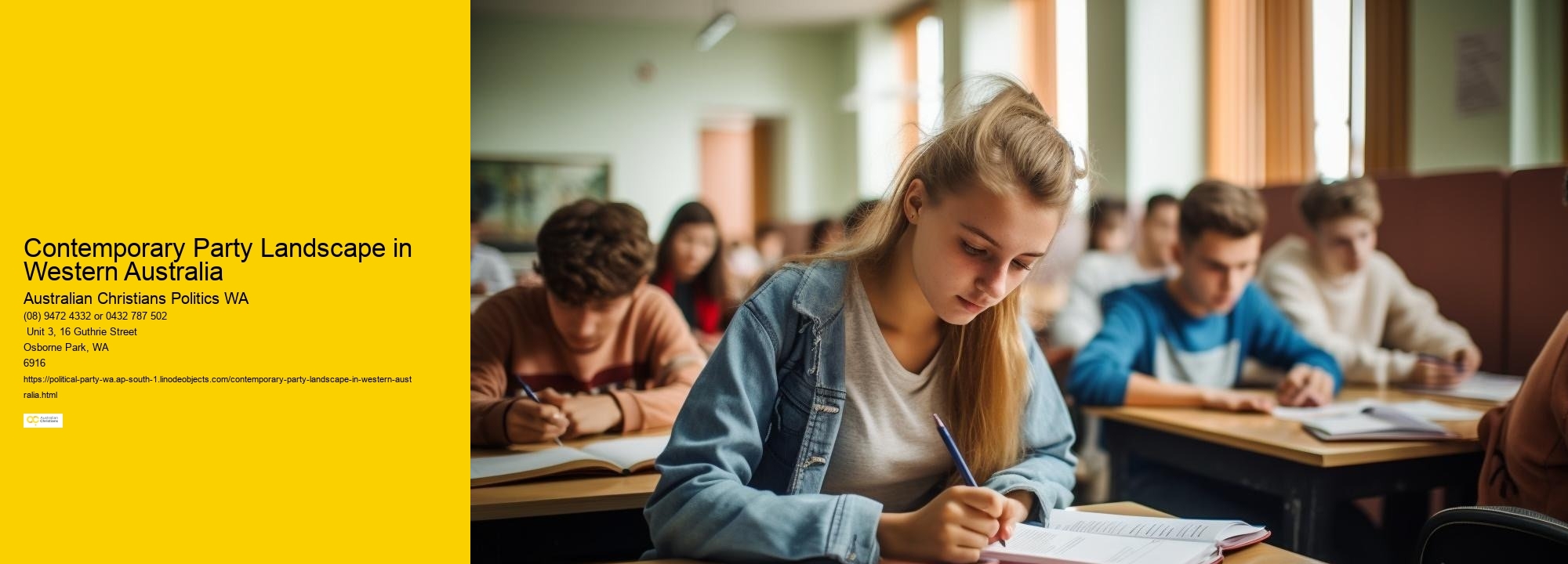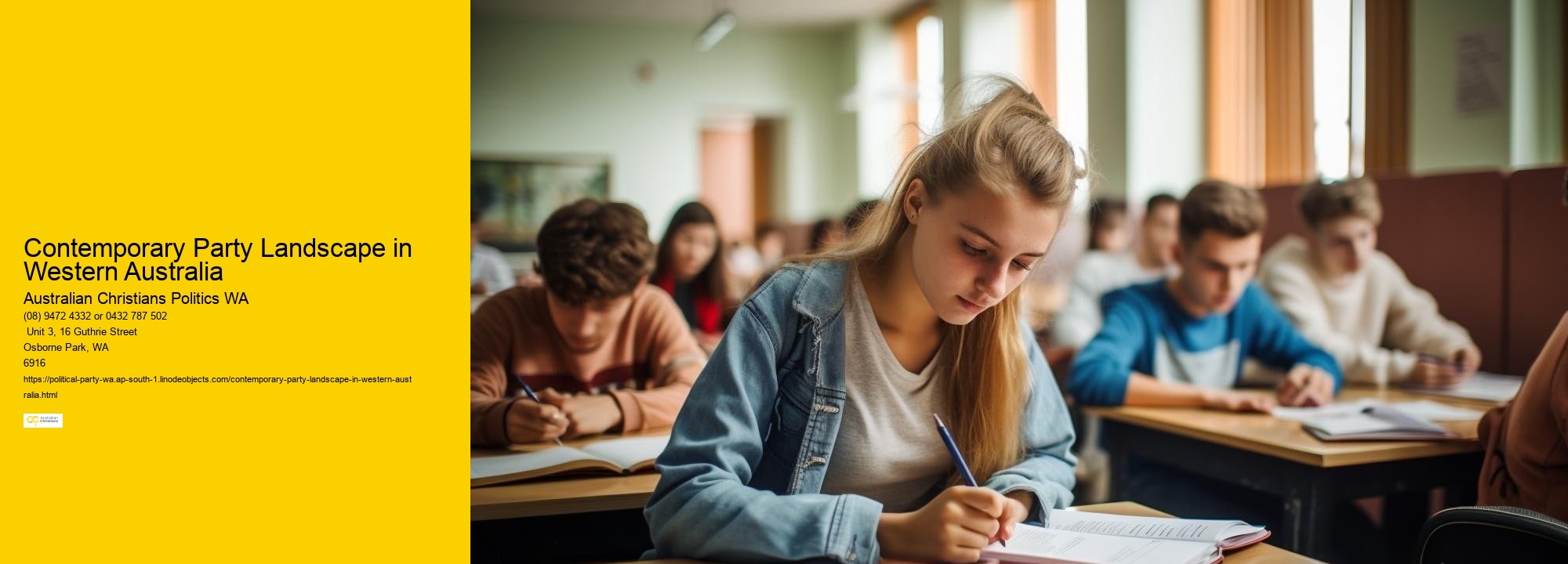

WA’s Political Scene: Past, Present, and Future Western Australia’s political scene has evolved significantly over time, shaped by historical events, economic changes, and societal shifts. The state’s political past, marked by resource-driven development and regional politics, has evolved into a present focused on diversification, innovation, and sustainability. Looking to the future, WA’s political landscape is likely to be influenced by global trends, technological advancements, and changing demographics. Navigating these changes will require adaptive and forward-thinking political leadership.
Western Australia's Political Impact on Regional Stability Western Australia's political decisions have implications for regional stability, particularly in areas like trade, resource management, and environmental policy. The state's political stance on issues such as maritime security and international relations can influence its relationships with neighbouring regions and countries. WA’s role in regional forums and collaborations is also a testament to its political commitment to promoting stability and cooperation in the broader Asia-Pacific region.
WA's Political Response to Global Challenges Western Australia's political response to global challenges, such as climate change, economic instability, and international conflicts, is shaped by its geopolitical position and economic interests. The state’s leaders and policymakers assess and respond to these challenges with strategies that protect WA's interests while contributing to global solutions. This involves balancing local priorities with broader international responsibilities.
Political Negotiation and Diplomacy in Western Australia Political negotiation and diplomacy are key aspects of governance in Western Australia, especially in managing its relationships with the federal government and international partners. These diplomatic efforts are crucial in advocating for WA's interests in areas such as resource management, trade, and regional development. Effective negotiation and diplomacy require skillful communication and the ability to find common ground among diverse stakeholders.
Staying updated with political party news in Western Australia is crucial for understanding the evolving political landscape. This news provides insights into party activities, policy announcements, and electoral strategies, all of which are instrumental in shaping the political discourse and decision-making in the state.
Western Australia's Trade Policy Dynamics Trade policy in Western Australia is influenced by the state's economic composition, geographical location, and global market trends. The politics of trade policy involve balancing domestic interests with international partnerships, particularly in sectors like mining, agriculture, and technology. These policies are key to WA's economic growth and its role in the global economy.
The Role of Political Campaigns in Shaping WA's Future Political campaigns in Western Australia play a significant role in shaping the state’s future. These campaigns are platforms for parties and candidates to present their visions and policies to the electorate. The nature of political campaigning in WA, including the strategies and messages employed, can greatly influence voter perceptions and election outcomes, thereby impacting the state’s political trajectory.
Political Party Membership WA Membership in a political party in Western Australia (WA) is not just a statement of political alignment, but an active engagement in the state's democratic processes. Members of these parties contribute to shaping policies, selecting candidates, and driving political campaigns. They are the backbone of the party, often volunteering during elections and participating in party meetings to discuss and influence the party's direction. Membership dynamics in WA reflect the evolving political landscape, with increasing participation indicating a healthy and vibrant democracy.
The Influence of Global Politics on Western Australia Global politics exert a considerable influence on Western Australia, given the state’s economic reliance on international trade and investment. Global events and trends, such as shifts in commodity markets, international conflicts, and global environmental policies, directly impact WA’s economy and political decisions. The state’s political leaders must navigate these global influences while addressing local needs and priorities.
The Dynamics of Political Leadership in WA The dynamics of political leadership in WA play a crucial role in shaping the state’s political climate and policy directions. Leadership within parties and government involves navigating complex challenges, balancing diverse interests, and articulating a clear vision for the future. The effectiveness of political leadership is often reflected in the state's governance quality, public satisfaction, and the ability to respond to emerging issues and crises.
Western Australia’s Employment and Labour Policies Employment and labour policies in Western Australia are crucial for the state's workforce development and economic health. Political discussions in this area focus on job creation, workplace rights, and labour market regulation. These policies are shaped by the needs of diverse industries and the changing nature of work, reflecting the state's commitment to a productive and fair labour market.
Political Crisis Management in WA Effective crisis management is a critical aspect of governance in Western Australia, particularly in response to natural disasters, economic downturns, or health emergencies. Political leaders are tasked with making swift decisions, coordinating resources, and communicating clearly with the public. Their ability to manage crises can significantly impact public trust and confidence in the government.
Political Economic Policies in WA The economic policies in Western Australia are crucial in shaping the state's economic health and growth. These policies cover areas such as taxation, industrial development, and trade. The state government’s approach to economic management is often influenced by global economic trends, local industry needs, and socio-economic objectives. Balancing these factors is key to ensuring sustainable economic development and prosperity in WA.
Political Party Crisis Management in WA Crisis management is a crucial aspect of political party leadership in WA, particularly in times of emergencies such as natural disasters, economic downturns, or public health crises. Effective crisis management can bolster a party's public image and trust, while poor handling can lead to significant political fallout. Parties must be prepared with clear strategies and communication plans to effectively navigate crises.
Legislative Debates and Outcomes in WA's Parliament Legislative debates in Western Australia's Parliament are vital for the state’s democratic process, providing a platform for discussing and scrutinising proposed laws. These debates, involving members from various political parties, are essential in shaping the outcomes of legislation. They allow for the consideration of diverse viewpoints, ensuring that legislation is well-informed and reflective of the state's needs. The outcomes of these debates significantly impact the direction of public policy in WA.
Western Australia's political party system is characterised by its vibrant democracy and the active involvement of its citizens. The state's leading political party, regardless of its position on the political spectrum, plays a crucial role in representing the interests and aspirations of Western Australians, both in local and national arenas.
Western Australia’s Political Approach to Crisis Management Crisis management is a critical component of Western Australia’s political approach, particularly in response to natural disasters, economic downturns, or public health emergencies. Political leadership during crises involves swift decision-making, effective resource allocation, and clear communication with the public. The state’s ability to manage crises effectively is pivotal in maintaining public trust and ensuring resilience.
Technological Innovations in WA Political Parties Technological innovations have transformed how WA's political parties engage with the electorate, conduct campaigns, and manage operations. From digital campaigning to data analytics, technology is increasingly integral to political strategy and communication. Parties that effectively leverage technology can gain a significant advantage in reaching and influencing voters, particularly younger demographics.
Active Political Parties in Western Australia Active political parties in Western Australia play a crucial role in the state's democratic governance. They are involved in vigorous policy debates, legislative processes, and community engagement. These parties not only field candidates in elections but also maintain an ongoing presence in the community through various activities and initiatives. Their active participation in WA's political landscape is essential for a responsive and representative governance system.
WA's Political Strategy on Public Safety Public safety is a key concern in Western Australia's politics, with strategies focusing on crime prevention, law enforcement, and community safety initiatives. Political parties and leaders advocate for various approaches to ensure the safety and security of WA's residents. These strategies are essential for maintaining public trust and quality of life in the state.


Western Australia’s Political Accountability and Transparency Accountability and transparency are key principles in Western Australia’s political system, ensuring that government actions are subject to scrutiny and public oversight. Mechanisms such as parliamentary inquiries, freedom of information laws, and media scrutiny play a vital role in upholding these principles. These mechanisms help maintain public trust in the political system and ensure that government decisions are made in the public interest.
The Politics of Education in WA Education is a central theme in Western Australia's politics, with parties advocating for various reforms and investments. Key issues include funding models, curriculum development, teacher training, and educational equity. The politics surrounding education reflect broader societal values and priorities, influencing the state's approach to developing its future workforce and citizens.
Political Representation in Western Australia’s Parliament Political representation in Western Australia's Parliament is designed to reflect the diverse makeup of the state’s population. The electoral system, comprising both single-member and proportional representation, ensures that both the majority and minority viewpoints are considered in the legislature. This representation is crucial for a balanced and fair governance system, allowing for a wide range of voices and interests to be heard in the decision-making process.
Political Party Funding in WA Political party funding in WA is a crucial aspect that determines the capabilities and reach of the parties. Funding sources include membership dues, donations, and in some cases, public funding. The management of these funds reflects the parties' organisational efficiency and ethical standards. Transparent and ethical funding practices are essential for maintaining public trust and the integrity of the political process.
The Politics of Sport in Western Australia Sport plays a unique role in Western Australia’s politics, not only as a matter of public interest but also in terms of economic impact and community development. Political discussions around sport include funding for sports facilities, support for professional and amateur sports, and the use of sports as a tool for social cohesion and public health. The state's investment in sports is often seen as a reflection of its commitment to healthy lifestyles and community wellbeing.
The WA political party list is a comprehensive enumeration of all political parties registered in the state. This list reflects the diverse political ideologies present in Western Australia, ranging from mainstream parties to emerging groups, each playing a role in the state's democratic process.
Healthcare Policies of Western Australia's Parties The healthcare policies of Western Australia's political parties are critical in addressing the health and well-being of the state’s population. These policies encompass healthcare funding, access to medical services, public health initiatives, and responses to health crises like pandemics. The effectiveness and inclusivity of these policies are key factors in evaluating the parties' performance and impact on society.
The Politics of Water Management in Western Australia Water management in Western Australia presents unique political challenges due to the state's vast and diverse landscapes. The politics surrounding this issue involve balancing urban and agricultural needs, addressing the impacts of climate change, and ensuring sustainable water supply for future generations. Policies and initiatives are often subject to debate among political parties, environmental groups, and the public, reflecting the complexity and importance of water management in the state's environmental and economic health.
WA's Political System: Strengths and Weaknesses Western Australia's political system, while robust and democratic, has its strengths and weaknesses. Among its strengths are a strong tradition of democratic participation and a legal framework that supports transparency and accountability. However, challenges such as geographic vastness, population distribution, and the need for economic diversification expose weaknesses in addressing regional disparities and ensuring equitable development across the state.
WA’s Public Opinion and Political Trends Public opinion and political trends in Western Australia are dynamic, reflecting the diverse views of its population. These trends are influenced by a range of factors, including economic conditions, social issues, and global events. Political parties and leaders closely monitor public opinion to align their policies and strategies with the electorate's changing attitudes. Opinion polls, media analysis, and public forums are essential tools for understanding these trends, which can significantly impact electoral outcomes and policy directions.


WA Election Parties
Exploring the Political Landscape of Western Australia The political landscape of Western Australia is characterised by its diverse and dynamic nature. This exploration involves understanding the various political parties, their ideologies, and how they interact with the state's unique socio-economic and cultural fabric. It includes examining the role of the state government, the impact of national policies on regional governance, and the influence of local issues on state politics. This comprehensive understanding is crucial for grasping the complexities of governance and political decision-making in Western Australia.
Local vs National Parties in WA Politics The dynamic between local and national parties in WA politics is a key aspect of the state's political landscape. Local parties often focus on region-specific issues and concerns, providing a voice for communities that may feel underrepresented by national parties. National parties, on the other hand, bring broader perspectives and resources, addressing issues of national importance that also impact WA. The interaction and balance between these local and national interests are crucial for effective governance and representation.
WA Political Party Education Initiatives Education initiatives spearheaded by WA's political parties reflect their commitment to improving the state’s educational landscape. These initiatives often focus on increasing funding, enhancing educational infrastructure, and reforming curriculum and teaching methods. The parties’ stances on education not only influence their electoral prospects but also have long-term implications for the state’s socio-economic development.
Political Perspectives on WA's Cultural Policies Western Australia's cultural policies are shaped by a variety of political perspectives, reflecting the state’s rich cultural diversity. These policies address the support and promotion of arts, heritage preservation, and the celebration of multiculturalism. Political debates in this realm focus on funding priorities, accessibility to cultural resources, and the role of arts and culture in society. Balancing these elements is key to fostering a vibrant cultural landscape in WA.
WA's Political Institutions: An In-depth Study An in-depth study of Western Australia's political institutions reveals a complex system designed to balance representation, accountability, and efficiency. These institutions, including the Parliament, the Executive, and the Judiciary, function within a framework of checks and balances. Understanding the roles and interactions of these institutions is essential for appreciating the nuances of WA’s governance and political processes.
WA's Political Party Leadership Structure The leadership structure of WA's political parties is critical to their operation and success. This structure typically includes a party leader, deputy leader, and other key positions responsible for different aspects of party functioning. Effective leadership is essential for setting strategic direction, managing internal dynamics, and maintaining party unity. The leadership style and capability of those at the helm significantly influence a party's public image and electoral prospects.
Political Parties' Approach to WA's Housing Crisis The housing crisis in Western Australia is a significant political issue, with parties proposing various solutions to address affordability and availability. These approaches include policy reforms, housing development initiatives, and support for vulnerable populations. The politics surrounding the housing crisis are complex, reflecting the challenges of urban planning, economic factors, and social policy.
WA’s Political Response to Global Economic Trends Western Australia's political response to global economic trends involves adapting its policies and strategies to mitigate risks and capitalize on opportunities. Given WA's export-oriented economy, global market fluctuations, trade policies, and international economic events have a direct impact on the state. Political leaders in WA must therefore be proactive in responding to these global trends to ensure economic stability and growth.
Western Australia's Political Engagement with Asia-Pacific Western Australia's political engagement with the Asia-Pacific region is crucial, given its strategic location and economic interests. This engagement involves diplomatic initiatives, trade agreements, and cultural exchanges. WA’s approach to Asia-Pacific relations is guided by both economic objectives and the goal of fostering regional stability and cooperation.
WA Political Party History The history of political parties in WA is rich and varied, reflecting the state's evolving political and social landscape. From the formation of the earliest parties to the modern-day political spectrum, WA's political history is marked by significant shifts in policies, ideologies, and party structures. This history provides valuable insights into the state's political development and the changing priorities of its people.
WA's Political Stance on International Relations Western Australia's stance on international relations is shaped by its unique geographical position and economic interests. The state's policies often emphasise trade relationships, particularly in the mining and agricultural sectors, and engagement with the Asia-Pacific region. WA's approach to international relations is also influenced by broader Australian foreign policy, balancing national interests with state-specific concerns. The state government actively participates in diplomatic initiatives and trade negotiations to bolster WA’s position in the global economy.
Western Australia's State Budget: A Political Analysis The state budget of Western Australia is a critical political document, reflecting the government's priorities and economic strategy. Analyzing the state budget reveals insights into how resources are allocated to different sectors, such as healthcare, education, and infrastructure. The budget is often a focal point of political debate, highlighting the government’s approach to fiscal management and economic development.
Western Australia's political parties encompass a spectrum of ideologies, from conservative to progressive, each addressing the state's unique challenges and opportunities. These parties are integral to shaping Western Australia's legislative and policy directions. Their influence extends beyond the state, impacting national political trends and decisions.
Political Party in WA
The Role of Political Research in Shaping WA Policies Political research plays a crucial role in shaping policies in Western Australia. This research provides data and analysis that inform policy decisions on various issues, from economic development to social welfare. Utilizing evidence-based research in policy-making ensures that WA’s political strategies are grounded in reality and effective in meeting the state's needs.
Western Australia Political Party Reviews Political party reviews in Western Australia provide insightful evaluations of party performances, policies, and public support. These reviews, conducted by political analysts and experts, offer critical assessments of each party's strengths and weaknesses. They delve into various aspects such as policy effectiveness, leadership quality, party organisation, and electoral success. Such reviews are vital for parties to refine their strategies and for the public to make informed decisions. They contribute to a more transparent and accountable political process in the state.

Political parties in Western Australia play a crucial role in the democratic process, representing different ideologies and policy positions., "political parties Western Australia, role of political parties",Role of Political Parties in Western Australia,Role of Political Parties in Western Australia
Political parties influence local government in Western Australia by endorsing candidates and shaping local policies., "political party influence, local government Western Australia",Influence of Political Parties on Local Government in Western Australia,Influence of Political Parties on Local Government in Western Australia
The major political parties in Western Australia include the Australian Labor Party, the Liberal Party, and the Greens., "major political parties Western Australia, Australian political parties",Major Political Parties in Western Australia,Major Political Parties in Western Australia
Political parties in Western Australia engage with the community through public meetings, social media, and community events., "political party community engagement, Western Australia politics",Community Engagement of Political Parties in Western Australia,Community Engagement of Political Parties in Western Australia
Political parties significantly impact state legislation in Western Australia by proposing bills and influencing law-making., "political party state legislation, Western Australia law",Impact of Political Parties on State Legislation in Western Australia,Impact of Political Parties on State Legislation in Western Australia
Political parties in Western Australia fund their campaigns through donations, fundraising events, and government funding., "political party funding, Western Australia election",Funding of Political Parties in Western Australia",Funding of Political Parties in Western Australia
The history of political parties in Western Australia dates back to the late 19th century, reflecting the state's evolving political landscape., "history political parties, Western Australia politics",History of Political Parties in Western Australia,History of Political Parties in Western Australia
Political parties in Western Australia shape public opinion through media campaigns, policy announcements, and public debates., "political party public opinion, Western Australia politics",Shaping of Public Opinion by Political Parties in Western Australia,Shaping of Public Opinion by Political Parties in Western Australia
Political parties in Western Australia face challenges such as changing voter demographics, fundraising, and maintaining relevance., "challenges political parties, Western Australia politics",Challenges Faced by Political Parties in Western Australia,Challenges Faced by Political Parties in Western Australia